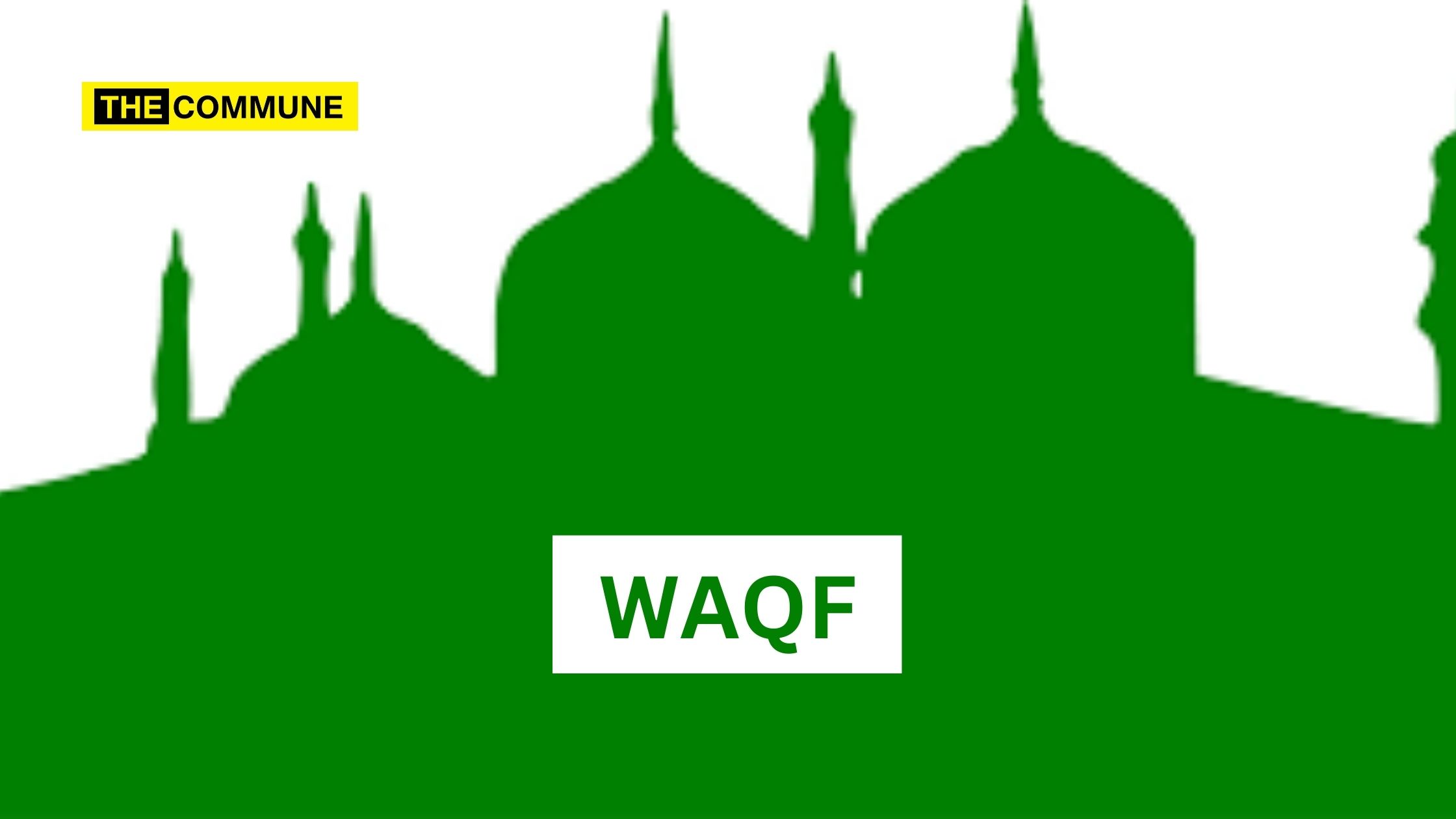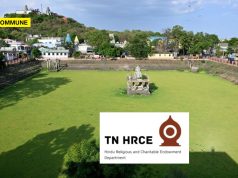
The Joint Parliamentary Committee (JPC) is reviewing the Waqf (Amendment) Bill, 2024 and inviting feedback from the general public, NGOs, experts, stakeholders, and institutions.
The Lok Sabha Secretariat issued a press communique on Friday, 30 August 2024, announcing this call for suggestions.
“The Waqf (Amendment) Bill, 2024, introduced in the Lok Sabha, has been referred to the Joint Parliamentary Committee for examination and report. Given the broad implications of the proposed Bill, the Committee, chaired by Jagdambika Pal, has decided to invite memoranda containing views and suggestions from the public, NGOs, experts, stakeholders, and institutions,” the statement read.
Individuals or organizations interested in submitting written suggestions can send them in English or Hindi to the Joint Secretary (JM), Lok Sabha Secretariat, Room No. 440, Parliament House Annexe, New Delhi-110001. Suggestions can also be emailed to jpcwaqf-lss@sansad.nic.in.
The statement specified that all submissions regarding the proposed Bill must be received within 15 days from the date of the advertisement’s publication. The Waqf (Amendment) Bill 2024 text is available in both Hindi and English on the Lok Sabha website.
According to the Lok Sabha advertisement, the memoranda and suggestions submitted to the JPC will become part of the committee’s official records. They will be treated as ‘confidential‘ and enjoy the privileges associated with the committee. Those wishing to appear before the committee must make a specific request in addition to submitting their written suggestions. However, the final decision on such requests will rest with the committee.
In this regard, Vishwa Samvaad Kendra Tamil Nadu organized a talk on the Waqf Amendment Bill in Chennai on 1 September 2024. Ramaswamy Meiyappan, an advocate in the Madras High Court, explained the basics of Waqf, the various Waqf amendments made over the years, the contentious 1995 Waqf Act, and the unfettered powers it enjoys. A Q&A session was also held after the talk.
About Waqf & Its Historicity
Waqf, a concept deeply rooted in Islamic tradition, though not explicitly mentioned in the Quran, embodies the spirit of charitable giving. It involves the endowment of property or wealth for public or religious purposes to benefit those in need. While the concept of Waqf is prevalent in many Islamic countries, its practice varies depending on local cultures and legal frameworks. In India, the practice of Waqf has a unique historical and legal trajectory, mainly through the evolution of laws and amendments over the years.
The idea of Waqf in India has been shaped by centuries of Islamic influence, with the 1913 Mussalman Waqf Validating Act as a significant milestone. This act was primarily introduced to resolve disputes related to Waqf properties. It provided a legal framework that recognized the validity of Waqf for public purposes, such as establishing schools, mosques, and burial grounds. However, the act did not address the complexities of Waqf related to inheritance, particularly the “Waqf al-aulad,” where the Waqf is created to benefit one’s descendants.
Post-independence, the Waqf Act of 1995 marked a significant shift, granting extraordinary powers to the Waqf boards to administer and manage Waqf properties. This act was seen as an attempt to streamline the functioning of Waqf institutions, but it also brought several challenges. Some viewed the amendments made in 2005 and 2013, aimed at improving transparency and accountability, as extreme and inadequate in resolving existing issues. These amendments highlighted the need for better registration, verification, and scrutiny of Waqf properties, particularly in cases where land ownership was disputed. Amendments also were made to allow non-Muslims to donate to the Waqf Board.
The Role Of Waqf In Indian Society
In India, Waqf is practised in two primary forms: as a charitable endowment for public purposes and as a means of inheritance (Waqf al-aulad). The latter is particularly significant in the context of the Hindu Succession Act, which governs inheritance laws for Hindus. Unlike Waqf, where the endowment is intended for public or religious purposes, Hindu inheritance laws are primarily concerned with the distribution of property among legal heirs. This distinction is crucial, as Waqf allows for donating uninherited property, making it a unique and flexible tool for charitable giving. The diversity in Waqf practices across different countries reflects the cultural and legal contexts in which they are embedded. In India, however, the focus has traditionally been on immovable property, such as agricultural land, factories, and buildings.
The 2024 Amendment Bill
The introduction of the Waqf Amendment Bill in 2024 has sparked considerable debate. Muslim organizations argue that the government’s involvement in religious matters, particularly in the administration of Waqf properties, raises concerns about the separation of religion and state. While some believe that the government’s role should be limited to auditing and cross-verifying records, others question whether the Waqf board and tribunal members should be selected based on religious affiliation or expertise.
One key issue with the current Waqf system is the lack of a standardized process for identifying and registering Waqf properties. The existing parallel registry maintained by Waqf boards is often criticized for its lack of transparency and accountability. The 2024 amendment bill addresses these issues by introducing stricter criteria for registering, verifying, and scrutiny of Waqf properties. However, whether these measures will effectively resolve the long-standing issues associated with the Waqf administration remains to be seen.
Challenges
The challenges facing the Waqf system in India are manifold and extend beyond the Muslim community. Issues related to Waqf properties affect people of all faiths, as disputes often arise over the ownership and management of these properties. The government’s involvement in resolving these disputes is necessary, but it should be done to respect the religious and cultural sensitivities of the communities involved.
Suggestions For Waqf (Amendment) Bill 2024
To make it easier for the general public to write to the JPC, here are a few suggestions that they can consider including in their email.
Reevaluation of the Waqf Act’s Existence
- Consider whether the Waqf Act itself should continue to exist in its current form.
- Evaluate if its functions can be better handled under existing civil laws.
Transparency in Waqf Board and Tribunal Appointments
- Ensure transparency in the appointment process for Waqf board and tribunal members.
- Implement transparent and fair criteria for selecting members to enhance trust and accountability.
Reverting to the 1913 Waqf Act for Dispute Resolution
- Consider reverting to the 1913 Waqf Act, focusing solely on resolving disputes related to waqf properties.
- Limit the scope of the Act to its original intent, reducing complexities and potential misuse.
Land Records Maintenance and Transparency
- Enforce the maintenance and transparency of land records, as mentioned in the amendment.
- Establish a dedicated agency to oversee land records, ensuring accuracy and public access.
Fair Dispute Resolution Mechanisms
- Include clear rules and regulations that define the powers and capabilities of the Waqf board and tribunal.
- Ensure that dispute resolution processes are fair and unbiased, involving members from the Muslim community and outside.
Property Disputes Jurisdiction
- Clarify that civil courts should handle property disputes involving waqf claims.
- Ensure that any government or private lands wrongfully claimed by Waqf are returned after properly examining documents.
Uniform Process for Land Resumption
- Establish a uniform process for resuming government or private lands claimed by Waqf.
- Ensure the process is fair, transparent, and based on thorough documentation and verification.
Other Points To Consider
- Define the tribunal’s powers and procedures
- Rationale for Government Aid
- Reevaluate the reasons and necessity for the government to grant aid to waqf properties or institutions.
- Ensure that aid, if provided, is transparent and serves clear public or charitable purposes.
Request To Public
The public is urged to make an effort to write to the Waqf JPC at the email address (at least) provided above with their suggestions. While many oppose Waqf, they can put that in writing, requesting the government to repeal the Act and give the government and the JPC an idea of the public sentiments.
Citizens can also request the JPC to consider reverting to the 1913 Waqf Act, which was mainly set up for dispute resolution.
There is strength in numbers—if citizens don’t express their thoughts and sentiments on issues at the right time, there’s little use in complaining later that the government didn’t act according to their wishes.
Subscribe to our Telegram, WhatsApp, and Instagram channels and instantly get the day’s best stories.




